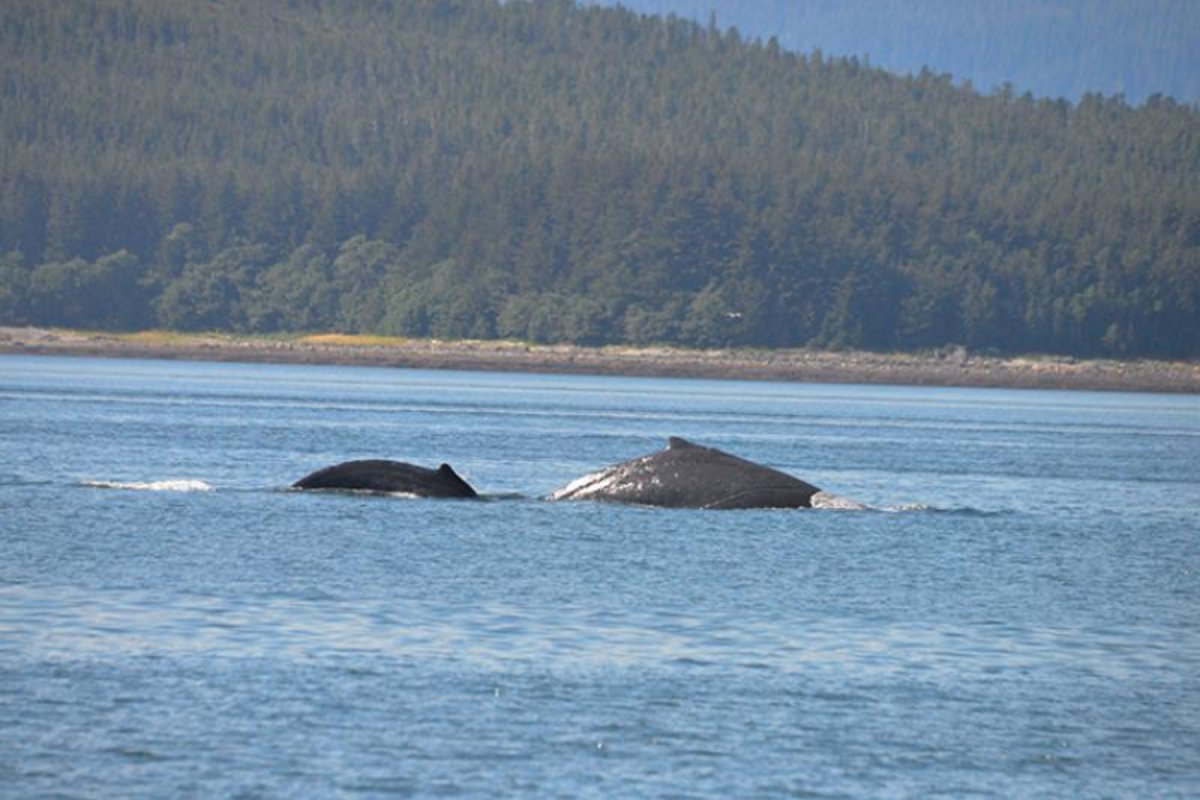Tango the humpback whale calf, who was found washed up dead on a shore in Alaska, has been confirmed to have died as a result of a collision with a vessel.
The calf's body was discovered on Hump Island in Favorite Channel on August 26, with subsequent post-mortem examinations confirming that Tango had been hit by a boat.
The autopsy revealed that Tango—who was the third calf of popular Juneau whale Sasha—had deep lacerations on its body and pectoral fin, thought to have been caused by a propeller.

Vessel strikes are a major driver of deaths in whales, "for the same reason they would be deadly to us—blunt force trauma from being impacted by objects weighing tens of thousands of tons, traveling often in excess of 20 mph, as well as the deadly propellor blades," Luke Rendell, a reader in biology and sea mammal expert at the University of St. Andrews in the U.K., told Newsweek. "After fin whales, humpbacks are one of the species thought to be most impacted."
Tango was also found to have scarring from past injuries, likely caused by smaller boats, National Oceanic and Atmospheric Administration marine mammal specialist Suzie Teerlink told local news KTOO.
"This calf had interactions with several vessels during the course of its short life," Teerlink said. "We see these sub-lethal interactions unfortunately pretty frequently."
Humpback whales can grow up to 56 feet long, and are limited in number after once being severely threatened in the aftermath of the whaling trade. They often migrate between breeding and feeding grounds, with some traveling up to 5,000 miles every season.
Humpback whales are at risk of colliding with ships when they come to the surface to breathe, especially in areas where their migratory routes meet shipping lanes.
"Vessel strikes involving humpback whales and other species are of significant concern, particularly in areas where maritime activities overlap with whale habitats. The frequency of these strikes varies depending on a number of factors that include location, whale behavior, and shipping traffic," Niki Alsford, a professor in Asia Pacific studies at the University of Central Lancashire in the U.K., told Newsweek.
Alsford specializes in the anthropology of the maritime Asia Pacific region, including incidents involving whales.
"Humpback whales, for example, are known to be susceptible to vessel strikes because they surface close to the water's edge, making them more vulnerable to collisions. The frequency of vessel strikes involving humpback whales varies by region. In areas with heavy traffic, such as major shipping lanes or popular whale-watching destinations, the risk of strikes is greater."
The true number of vessel strikes that occur every year is unknown, due to collisions often going unreported or even undetected.
"Crew on large commercial vessels will typically not even notice the impact and there are multiple incidences of vessels arriving in port with dead whales caught on their bows that the crew were unaware of and it can only be a minority of cases where the struck animal remains pinned like this," Rendell said.
Experts say that the main thing that can be done to prevent vessel strikes is to set up speed limits for ships and boats, especially in areas where whales are commonly seen.
"Some places have implemented regulations and speed limits in known whale habitats to reduce the risk of strikes. Compliance with these regulations can significantly affect the strike rate," Alsford said.
"There are ongoing efforts to reduce the frequency of vessel strikes through various means. These include vessel speed restrictions, improvement in technology, such as whale detection systems, and public education initiatives. The effectiveness of these measures varies by region and species, and ongoing research and conservation work are important in protecting whales."
Do you have an animal or nature story to share with Newsweek? Do you have a question about whale strandings? Let us know via science@newsweek.com.
Uncommon Knowledge
Newsweek is committed to challenging conventional wisdom and finding connections in the search for common ground.
Newsweek is committed to challenging conventional wisdom and finding connections in the search for common ground.
About the writer
Jess Thomson is a Newsweek Science Reporter based in London UK. Her focus is reporting on science, technology and healthcare. ... Read more
To read how Newsweek uses AI as a newsroom tool, Click here.






